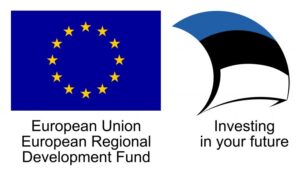
The project aimed to find an artificial intelligence model that would make it easier to identify potential salary tax fraud.
To make this possible, MindTitan is working on creating a model that can analyze and recognize patterns — mainly through tax return information — and as a result, indicate which companies should be more closely scrutinized.
134,1 million euros of potential tax revenue lost

According to calculations by the Estonian Tax and Customs Board (ETCB), in 2019 the state lost 134,1 million euros of potential tax revenue due to so-called “under the table wages.” Taking into account that Estonia has a population of 1.3 million, as well as its advanced digital systems, the number is still extreme — something needs to be done.
Currently, ETCB makes decisions for identifying the sectors and companies that require attention, based on data analysis. This analysis is based on a series of declarations that companies are required to present each month. When the submitted declarations do not meet the requirements, the ETCB carries out a risk analysis.
The current risk analysis is rule-based, which means that rules for storing, sorting, and processing data are hand-crafted. Companies that are in risk groups are prioritized according to how high or low the risk is. The initial selection is made automatically and then reviewed by analysts; the final choice is made by an auditor, who also decides how to proceed.
According to Pille Muni, Development Specialist at the Tax Audit Department at ETCB, the problem with the old approach is that finding instances of fraud with such a system is very time-consuming and resource-intensive. Furthermore, the old model is not effective enough to achieve the desired result. Thus, the primary goal of the pilot project was to find a solution that would solve this problem and allow for more efficient tax fraud detection and tax collection.
MindTitan’s vision is a solution in which accuracy can be increased over time by building a human-in-the-loop system for better tax fraud detection.
In a system with human supervision, artificial intelligence is learning to make human-like decisions while also finding connections that are sometimes overlooked by humans and that are not realistic to cover with a rule-based system alone. In the scope of the current project, MindTitan used the existing data and created additional data during the project. The pilot project launched in 2021 showed an amazing 97% accuracy in correctly detecting tax fraud.
The follow-up project would be to build an entire information system and data conveyors in order to automatically collect more training data and to train the system more intelligently. The aggregation of additional data sources in the follow-up project will also remain in place, but the data processing system used in the scope of the project will create preconditions for merging more and more data in the future, and for processing these efficiently.
As a result, the selection of companies that warrant closer scrutiny should become more accurate, and the probability of wages being paid under the table should decrease. This will also make the work of both analysts and auditors more efficient. It is possible that artificial intelligence will become smart enough in the future that the intermediate selection of objects by the analyst will become unnecessary in some cases, but the final decision will always be made by human officials.




